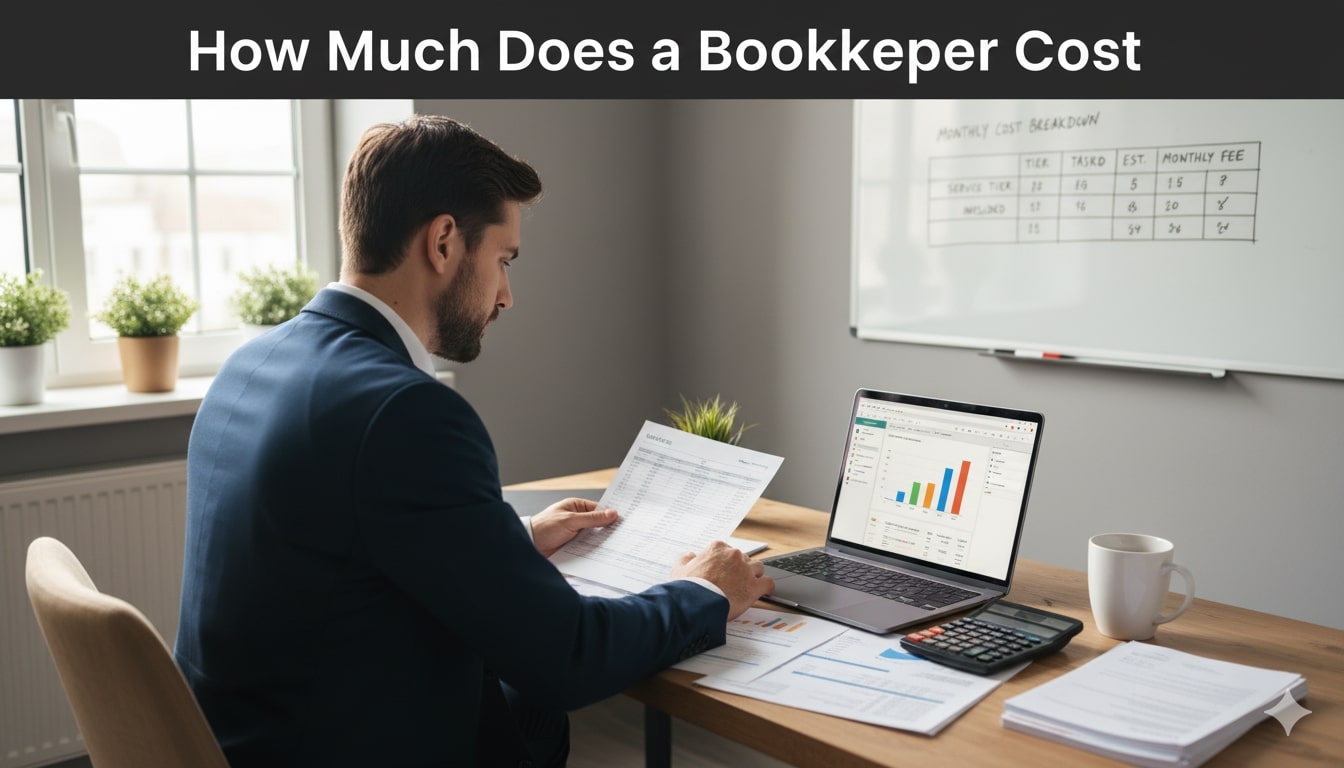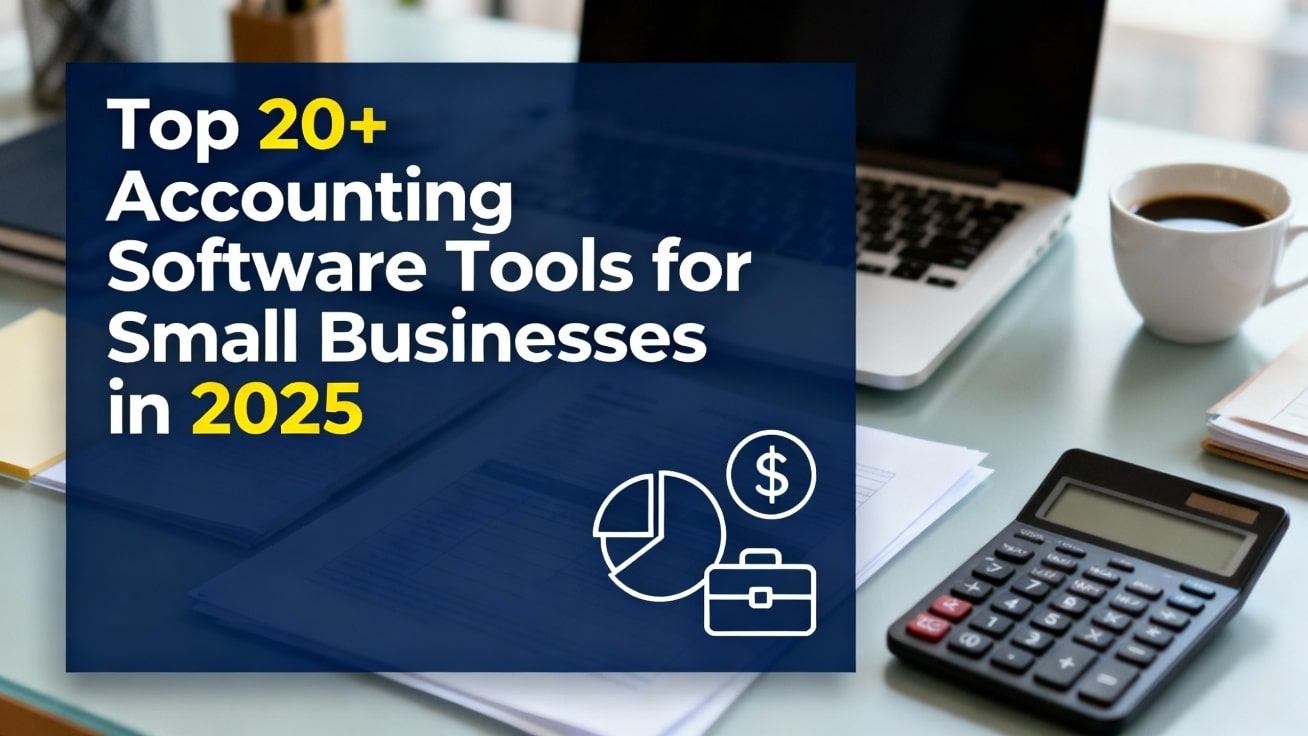Understanding the Role of an Accountant in a Startup’s Journey
Introduction: Why This Question Matters in 2025
If you’re a startup founder asking, “Do I need an accountant for my startup?”, you’re not alone—and you’re asking the right question. In today’s startup ecosystem, where burn rate, financial compliance, and scalability dictate your runway, understanding when and why to bring an accountant on board can determine your survival or success.
As a professional with 15+ years in accounting and finance advisory for startups, I’ve seen founders thrive—and fail—based solely on how well they handled their finances in the first 18 months. This article is your comprehensive guide to knowing if, when, and why hiring an accountant makes sense for your startup, whether you’re pre-revenue or already scaling.
Let’s start by understanding what an accountant actually does for a startup and how that role evolves over time.
🧾 What Does an Accountant Do for a Startup?
Many founders wrongly assume that accountants only file taxes or keep books. In reality, a startup-focused accountant can be a strategic partner in your journey from MVP to Series A and beyond.
🔍 Core Responsibilities of a Startup Accountant
- Bookkeeping & Recordkeeping: Maintaining accurate day-to-day financial records
- Tax Compliance: Ensuring timely filings, handling deductions, and avoiding penalties
- Cash Flow Management: Projecting runway, identifying burn rate issues early
- Financial Forecasting: Helping you make informed decisions on hiring, spending, and pricing
- Investor Reporting: Preparing clear, clean financials for seed or Series A due diligence
- Audit Readiness: Setting up GAAP-compliant systems from the start
- Financial Systems Setup: Implementing tools like QuickBooks, Xero, or integrated SaaS accounting platforms
An experienced accountant brings more than technical skills—they bring context, strategy, and clarity to your numbers.
🚀 Do All Startups Need an Accountant from Day One?
Stage 1: Pre-Revenue or Pre-Product (0–6 Months)
At this stage, you’re focused on product-market fit, maybe bootstrapping or using founder capital. You may not need a full-time accountant, but that doesn’t mean you don’t need accounting help.
Signs you might still need accounting support:
- You’re forming an entity (LLC, C-Corp) and need help choosing the right structure
- You’re applying for grants or startup loans.
- You plan to onboard co-founders or issue equity.
✅ Ideal Solution: Use a part-time accountant, financial consultant, or virtual CFO for setup and compliance. Avoid DIY legal/accounting mistakes that cost you down the line.
💡 Founder Tip:
Many founders rely on spreadsheets at this stage, but these quickly become outdated, error-prone, and painful to manage. Setting up a basic accounting system with help from an accountant can prevent major headaches later.
🧗 Stage 2: Early Traction & Initial Revenue (6–18 Months)
Now you’ve launched, you’re closing your first customers, and cash flow starts to matter. Here, hiring or contracting an accountant becomes a necessity, not a luxury.
Why is this a critical turning point?
- You’ll need monthly reports to track performance.
- Investor questions get more complex: How’s your burn rate? Your CAC-to-LTV ratio?
- Tax season can catch you off guard if you’re not prepared.
- You’re paying contractors, vendors, maybe even your first employees
At this stage, founders commonly realize: “I can’t afford to get the numbers wrong.” Late filings, missed deductions, or poor financial visibility can eat into your limited runway.
📊 Benefits of Hiring an Accountant Early
Let’s break down the real-world benefits that a seasoned accountant brings to your startup from day one.
✅ 1. Financial Clarity = Better Decisions
With reliable books and smart forecasting, you can make confident calls about:
- Hiring timelines
- Pricing strategy
- Expansion into new markets
✅ 2. Investor Readiness
Every investor wants to see clean financials. Having an accountant from the start builds trust and improves your chances of raising funds. You’ll impress VCs with:
- Standardized reports (P&L, balance sheet, cash flow)
- Cap table transparency
- Due diligence-ready documentation
✅ 3. Time Back to Focus on Growth
Founders shouldn’t be bogged down in QuickBooks errors or tax filing portals. Delegating this to a pro saves you hours weekly, which you can reinvest into product development, customer interviews, and sales.
❓“But Can’t I Just Use Accounting Software Instead?”
You absolutely can—and should—leverage modern tools like:
- QuickBooks Online
- Xero
- Wave (for early bootstrappers)
- Zoho Books
But software doesn’t replace strategy. An accountant interprets the data, ensures compliance, and helps you plan. Think of it like this:
💬 “Accounting software is the calculator. Your accountant is the mathematician.”
⏳ Timing Matters: When Should I Hire an Accountant?
The most common question founders ask is: “When is the right time to hire?”
Here’s a simple framework:
| Startup Stage | Accountant Needed? | Ideal Solution |
|---|---|---|
| Pre-revenue | Maybe | Part-time accountant or setup consult |
| First 5 customers | Yes | Monthly bookkeeping + tax help |
| Team of 3+ + Payroll | Definitely | Full-cycle accountant or firm |
| Raising capital | Absolutely | CPA or CFO-level advisory |
| Scaling revenue > $500k | Full-time or outsourced CFO | Strategic financial oversight |
The Pros and Cons of Hiring an Accountant for Your Startup

Should You Hire an Accountant or Manage Finances Yourself?
As a startup founder, especially in the early stages, it’s normal to wear multiple hats, including finance. But how long should you manage things yourself before bringing in professional help?
Now we’ll break down the real-world pros and cons of hiring an accountant so you can confidently decide whether it’s the right time to invest, or if you’re still okay handling things in-house.
✅ The Pros of Hiring an Accountant for Your Startup
📈 1. Strategic Financial Guidance
Accountants are not just “number crunchers.” A good startup accountant helps guide your financial roadmap—whether that means extending your runway, setting investor-friendly KPIs, or optimizing cash reserves.
🕓 2. Saves Time and Reduces Founder Burnout
You didn’t launch a startup to become a tax expert or reconciliation pro.
By hiring an accountant:
- You get clean books without the stress
- You avoid hours wasted each week trying to understand debits and credits.
- You reduce the risk of burnout caused by financial anxiety.
“Is it worth hiring an accountant to save time as a founder?”
Yes, especially if managing finances distracts from product development or growth.
🧾 3. Tax Planning and Compliance
Startups often miss critical deductions, tax credits (like R&D), or file late, racking up penalties. Accountants help you:
- Stay compliant with federal, state, and sales tax obligations
- Strategically plan for tax liabilities, not just react to them.
- Apply for credits and save thousands in tax deductions.
💰 4. Clean Financials Attract Investors
If you’re seeking external funding, every investor and VC firm will eventually say:
“Let me see your books.”
When your financials are disorganized or messy:
- Due diligence slows down
- Valuation can suffer
- Trust erodes quickly
A professional accountant ensures that when opportunity knocks, your financials are ready to go.
🧠 5. Objective, Data-Driven Decision Support
When you’re deep in the trenches, emotions can skew financial decisions. Accountants bring unbiased, objective insights based on real numbers. This helps:
- Prevent over-hiring
- Avoid overspending on tools.
- Predict future cash shortages before they hit
❌ The Cons of Hiring an Accountant for Your Startup
While the benefits are substantial, hiring an accountant isn’t always the best immediate move, especially if you’re just starting. Here are the downsides to consider:
💸 1. It’s an Additional Cost
Startups are notoriously cash-strapped. Hiring a professional accountant may cost:
- $300–$1,000/month for freelance or part-time
- $60,000+ annually for a full-time in-house hire
For bootstrapped founders, that might not be feasible right away.
“How much does an accountant cost for a startup?”
Answer: It varies. You can hire a freelance bookkeeper for under $500/month, but a dedicated CPA may cost more depending on complexity.
🧩 2. Not All Accountants Understand Startups
Hiring someone with “accountant” on their resume isn’t enough. Startups need professionals who understand:
- High-burn-rate environments
- Deferred revenue models (especially SaaS)
- Equity compensation (stock options, SAFEs)
- Cap tables and investor relations
Hiring the wrong accountant can actually create more confusion and inefficiency.
🕰️ 3. Risk of Overengineering Early Finances
At the earliest stages, some founders over-invest in accounting infrastructure before it’s necessary. If you’re pre-revenue, not incorporated, and don’t have outside capital, you may be able to:
- Use accounting tools like Wave or Xero
- Work with a monthly contractor just for tax compliance.
Don’t overbuild—spend based on your current financial complexity.
Types of Accountants: Which One is Right for Your Startup?
Not all accountants offer the same services. Here’s a breakdown of the types of accounting professionals and how they fit different startup stages:
| Type | What They Do | Best For | Estimated Cost |
|---|---|---|---|
| Bookkeeper | Maintains day-to-day records, categorizes transactions | Solo founders, early-stage | $200–$600/month |
| CPA (Certified Public Accountant) | Tax filing, compliance, audits, and advanced advice | Seed-stage+, tax season | $1,000–$5,000+/year |
| Virtual CFO | Strategic oversight, forecasting, and modeling | Growth-stage startups | $1,500–$10,000/month |
| Full-Time Accountant | Handles everything in-house | Post-Series A, scaling teams | $60k–$100k/year |
🔍 Choosing Between Hiring vs. Outsourcing
Here’s a simple decision-making framework:
| Criteria | Hire an Accountant | Do It Yourself / Use Tools |
|---|---|---|
| Revenue over $100K/year | ✅ | 🚫 |
| Paying contractors or employees | ✅ | 🚫 |
| Raising funding in the next 6 months | ✅ | 🚫 |
| Pre-product, pre-revenue | 🚫 | ✅ |
| Comfortable with finance & taxes | 🚫 | ✅ |
| Cash-flow positive with monthly growth | ✅ | 🚫 |
🤖 What About AI Accounting Tools?
In 2025, AI-powered tools like Pilot, Bench, and Found offer bookkeeping + automation. These can be a great starting point, but don’t fully replace human accountants.
- AI can auto-categorize transactions, generate reports, and sync banks.
- But it lacks judgment, tax knowledge, and strategic insight.
Pairing AI tools with a human advisor offers the best of both worlds.
When to Hire, How to Choose, and What to Expect

🕰️ When Is the Right Time to Hire an Accountant for Your Startup?
Timing is everything in startups, and it’s no different with accounting. Hire too early, and you might overpay. Wait too long, and you could make costly mistakes.
So… when exactly should you bring an accountant on board?
🔑 5 Clear Signals You’re Ready for an Accountant:
- You’ve formed a legal entity (LLC, C-Corp, etc.)
- You’re earning revenue, even a few hundred dollars/month.
- You’re paying contractors, freelancers, or employees.
- You’re prepping to raise money in the next 6–12 months.
- You’re spending 4+ hours/month trying to manage finances yourself.
“At what point should a startup hire an accountant?”
Once you’re generating revenue or plan to raise funds, it’s time to bring in professional help.
📋 How to Choose the Right Accountant for Your Startup
Now that you know the timing, let’s walk through the exact steps to find the right accountant who understands startups, not just spreadsheets.
✅ 1. Look for Startup-Specific Experience
Not every accountant knows the startup world. You need someone familiar with:
- SaaS metrics, burn rate, and ARR
- Convertible notes, SAFEs, and equity
- R&D tax credits
- High-growth forecasting
Ask: “Have you worked with venture-backed startups before?”
✅ 2. Ask About Tools & Automation
Modern accountants should be fluent in:
- QuickBooks Online, Xero, or Zoho Books
- Gusto or Rippling (for payroll)
- Stripe, Brex, or Mercury integrations
- AI bookkeeping tools like Bench, Pilot, or Found
A tech-savvy accountant will streamline your systems, not complicate them.
✅ 3. Match Their Services to Your Stage
Don’t overhire. Here’s how to align your startup stage with the right kind of accounting support:
| Startup Stage | Recommended Support |
|---|---|
| Pre-revenue | Setup consult + annual tax advisor |
| Early revenue (<$250K) | Bookkeeping + quarterly CPA check-ins |
| Growing (>$250K revenue) | Monthly accounting + forecasting |
| Scaling (> $1M revenue) | Virtual CFO + financial modeling |
✅ 4. Evaluate Communication and Trust
Choose someone who:
- Speaks in clear, jargon-free language
- Offers monthly insights, not just year-end tax help
- Responds within 24–48 hours
- Explains, not just reports
This isn’t just a vendor—it’s a financial partner.
🧠 Pro Tip: Go Beyond Referrals
- Interview 2–3 candidates
- Request sample reports
- Ask how they handle scalability and cash flow issues.
- Inquire about year-round support vs. tax-season-only services.
You’re hiring for impact, not just compliance.
📅 What to Expect in the First 90 Days After Hiring an Accountant
Once you’ve hired your accountant, here’s how the engagement typically unfolds:
📌 Month 1: Onboarding & Catch-Up
- Bank and credit card connections
- Access to payment platforms (Stripe, PayPal)
- Review of historical transactions
- Reconciliation of missed months or tax cleanup
📌 Month 2: Systems Setup & Reporting
- Setting up dashboards or reports
- Establishing cash flow tracking
- The monthly close routine begins.
📌 Month 3: Insights, Forecasts & Strategic Help
- Reviewing revenue vs. burn
- Flagging risky spend areas
- Starting budget or hiring plan
- Planning for quarterly tax payments or funding milestones
By Month 3, most founders say:
“This is the first time I’ve felt in control of my startup’s finances.”
📌 Bonus: A Decision Checklist for Founders
If you’re still unsure whether now is the time, go through this 7-point checklist:
✅ Are you making sales or collecting payments?
✅ Do you feel uncertain about your tax obligations?
✅ Are you spending more than 2–3 hours/month on finances?
✅ Have you formed an LLC, S-Corp, or C-Corp?
✅ Are you hiring or paying contractors?
✅ Are you planning to raise money in the next year?
✅ Do you feel anxious or unclear about your financial runway?
If you checked 3 or more, you’re ready for an accountant.
🧠 Final Thoughts: Why Every Smart Founder Eventually Brings In Financial Expertise
No one starts a company to become a tax expert. But ignoring finances is one of the biggest reasons startups fail—not because of bad ideas, but because of bad financial decisions made in the dark.
Hiring an accountant isn’t about spending money—it’s about buying clarity, compliance, and confidence.
- They help you see around corners.
- They prep you for investor conversations.
- They give you data to grow responsibly.
Whether you’re bootstrapping or on a fast track to funding, the right accountant can become your secret weapon—quietly working in the background while you build something great.
Frequently Asked Questions
Q1: Do I need an accountant if I’m not making revenue yet?
Not always, but if you’re setting up an entity, issuing equity, or applying for grants, a consultation can help you avoid foundational mistakes.
Q2: What’s the difference between a bookkeeper and an accountant?
Bookkeepers manage day-to-day transactions; accountants provide tax compliance and financial analysis. Many firms now offer both.
Q3: Can I use QuickBooks or Xero instead of hiring an accountant?
Yes, but software doesn’t replace strategy. Combine tools with expert advice for the best results.
Q4: Should I hire a local accountant or a remote one?
Either works, but remote accountants with startup experience may offer better tools and pricing flexibility.
Q5: When is a virtual CFO better than a regular accountant?
When your startup is raising funds, scaling past $1M, or needs help with forecasting, strategic hiring, or investor reporting.
🏁 In Closing
The real question isn’t just “Do I need an accountant for my startup?”
It’s: “Can I afford to make financial mistakes I could’ve avoided?”
If your answer is no, it’s time.










 447 Broadway, 2nd Floor, Suite 2531, New York, NY 10013, USA
447 Broadway, 2nd Floor, Suite 2531, New York, NY 10013, USA 20 Wenlock Road, London, N1 7GU, UK
20 Wenlock Road, London, N1 7GU, UK
